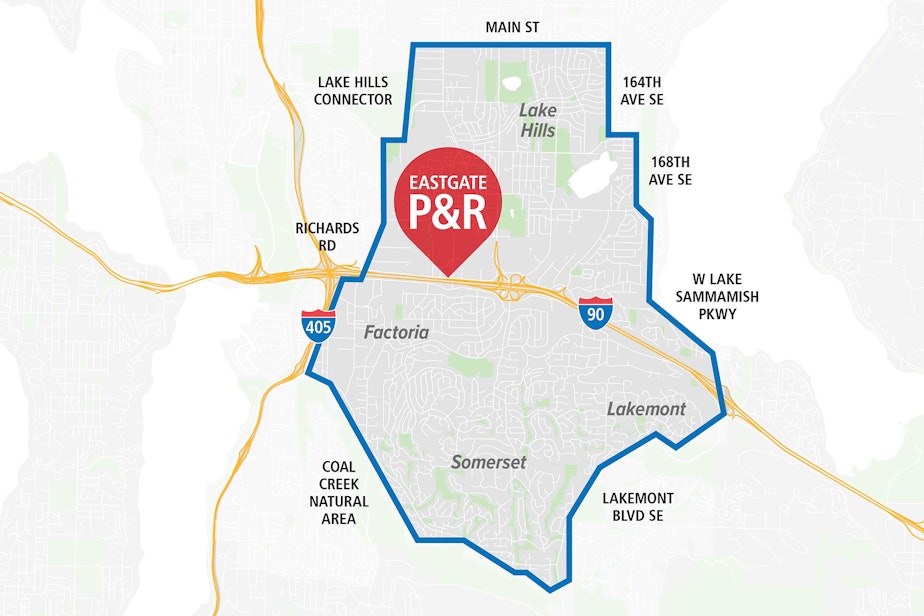King County takes on Uber, Lyft with new app focused on getting you to transit

It's a project that could disrupt the disruptors. King County Metro will experiment with an on-demand service between park-and-rides and a pickup spot a short walk from your front door.
The "Ride2 Park and Ride" pilot project will operate first in communities around the Eastgate Park-and-Ride. The 1,600-stall facility serves one of east King County's most important transit hubs.
“We know that park and ride is past capacity," said Metro's Chris O'Claire. "People are telling us they can’t get a place to park their car. So how do we get them there? How do we get them connected? We are looking at a new way of delivering service.”
On the surface, Metro's app operates like Uber or Lyft’s carpool services. As with those services, riders use an app to request service, and may have to take a short walk to a pickup point. Unlike those services, King County’s service will cost the same as a standard bus ride ($2.75). And because it's transferable, using the service won't add cost to existing commutes. In fact, the service will be free during the pilot period.
The service will begin at Eastgate Park-and-Ride on Tuesday, Oct. 23, but in 2019, O'Claire said Metro will expand the service to other park and rides.

Sponsored
The more important difference from Uber and Lyft might be that the service addresses the larger problem known by planners as the "last mile" problem. Often, there's a distance — sometimes even a mile — between commuters' homes and frequent, reliable transit service. To cover that distance, many commuters use their cars. Then, rather than transferring to a bus, they drive those cars all the way to work. That's especially true if the park and ride can't accommodate their vehicles. That sort of inconvenience may be one reason Uber and Lyft have lured customers away from mass transit around the country.
But reports that ride-hailing services have added to traffic congestion have shifted how those companies talk about their service. Ride hailing companies stopped claiming they would benefit cities by encouraging people to give up their cars, and started talking more about helping solve the "last mile problem" by forming partnerships with transit companies. Of those companies, Ford's electric microbus subsidiary, Chariot, with its slogan "Mass Transit Reinvented," won the heart of King county Metro.
But the idea that only the private sector can transform public transit has Ken Price, president of Metro's biggest union, nervous. He said his group hasn't seen the contract between Metro and Chariot, despite repeated requests and a history of transparency.
He said the job listings for Chariot drivers appear to pay several dollars less per hour than traditional Metro jobs, with fewer opportunities for advancement and fewer safety training requirements — echoing concerns taxi drivers had when Uber and Lyft disrupted their industries.
“This is a big wake up call for us," he said. "My operators are calling and saying ‘What are we doing about this?’ This affects them and their families.”
Price said if the new fleet’s workforce is made up of part-time, non-union employees, his union will probably try to organize them, something his group hasn't done in 20 years.
Over the next year, Metro plans to collect data and feedback on how commuters like the service.
Correction: An earlier version of this story misidentified why some Eastgate parking spaces are temporarily unavailable.

